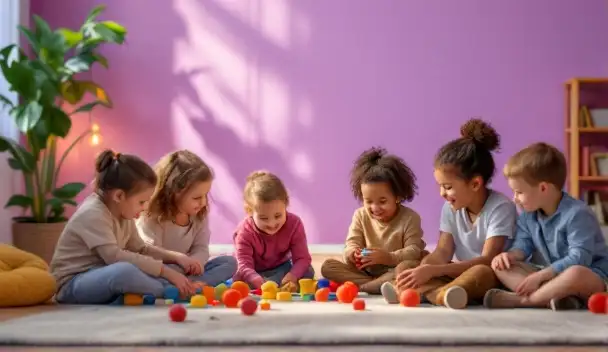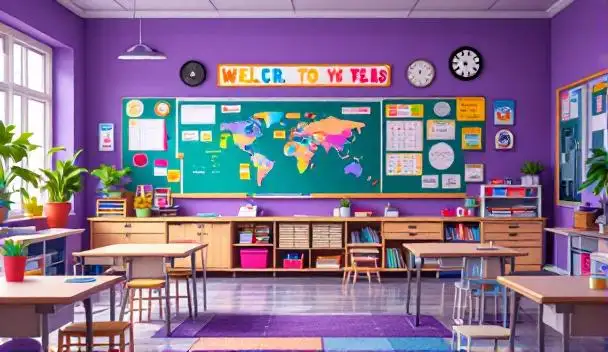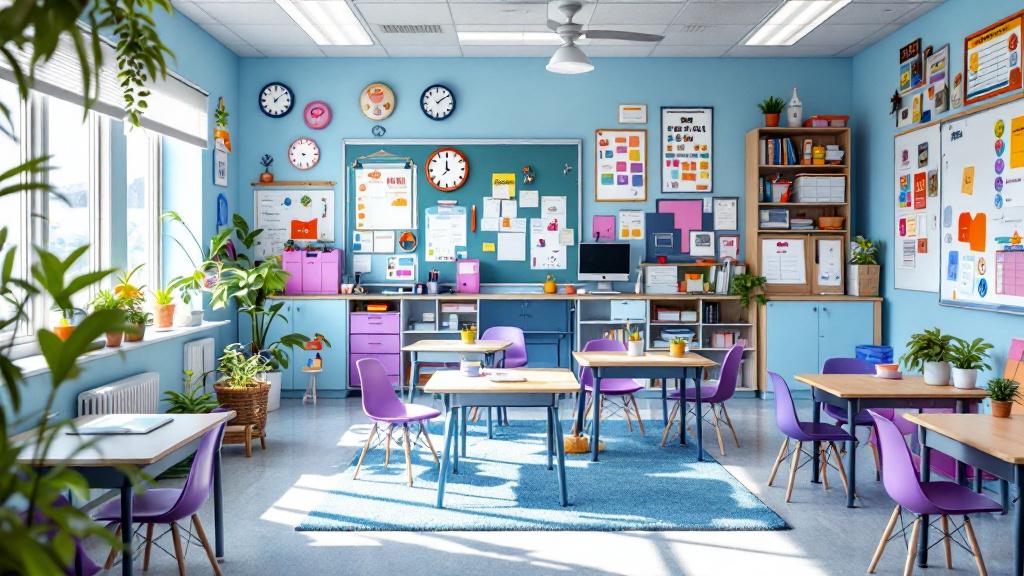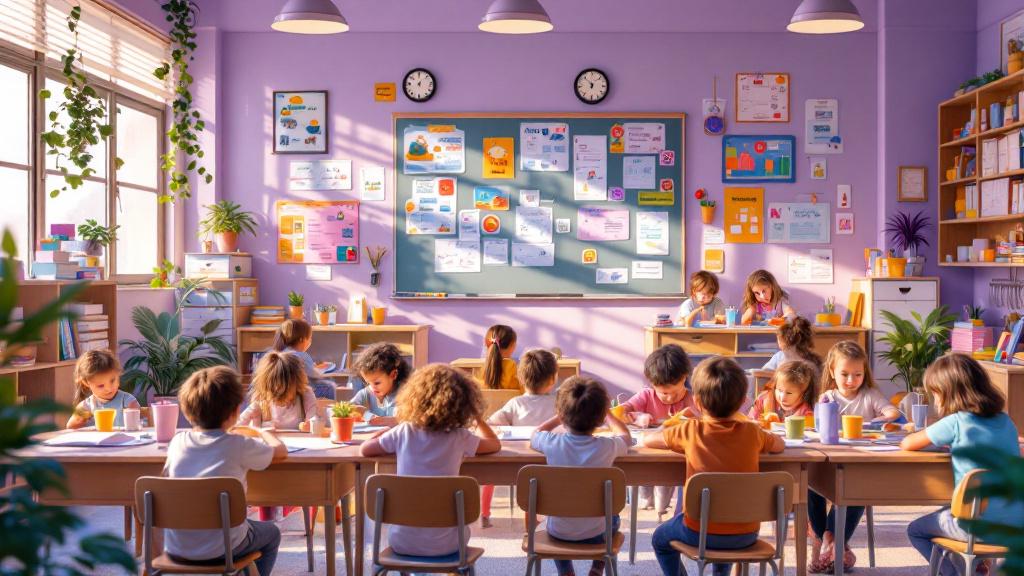Understanding the Importance of Social Skills Development
Developing social skills is a fundamental aspect of childhood, laying the groundwork for positive relationships, effective communication, and social confidence. While some aspects of social interaction come naturally, most social skills are learned behavior, shaped significantly by parents and caregivers. Recognizing the signs of social difficulties and employing targeted strategies can profoundly impact a child's ability to navigate the social world successfully.
The Foundations of Social Skills in Child Development

What social skills encompass
Social skills are the abilities children use to communicate and interact effectively with others. These include both verbal and non-verbal techniques such as speech, gestures, facial expressions, and body language. Developing good social skills helps children make friends, understand social norms, and maintain positive relationships throughout their lives.
Children learn to use appropriate language, show empathy, modulate their tone of voice, and share ideas—all essential components of social interaction. Mastering these skills allows them to navigate various social settings confidently, from family gatherings to school activities.
Developmental milestones for social skills
Social skills develop gradually, with significant milestones across childhood. For example, infants begin with eye contact and simple gestures. Toddlers start sharing toys and taking turns, while preschoolers learn to participate in group play and express their needs politely.
As children grow, they refine skills like understanding emotions, resolving conflicts, and maintaining conversations. By the time they reach adolescence, they often develop advanced skills such as teamwork, emotional understanding, and problem-solving within social contexts.
Supporting this development involves activities like role-playing, social stories, and participating in group activities. Early intervention and guided practice are crucial, especially for children with developmental challenges.
The importance of early social interactions
Early social experiences form the foundation for a child's ongoing social and emotional development. These interactions teach children how to listen, share, cooperate, and respect boundaries. They also help children learn how to resolve conflicts and show empathy.
Signs of social skill difficulties may include limited eye contact, trouble with turn-taking, or difficulty understanding non-verbal cues. Recognizing these early signs enables caregivers and educators to provide targeted support.
Activities like family playtime, organized playgroups, and guided social stories can promote skills such as patience, active listening, and sharing. Using visuals or social stories also helps children understand social norms and appropriately respond to social cues.
Incorporating positive reinforcement, modeling respectful behavior, and providing consistent opportunities for social engagement support children in developing these essential skills.
| Social Skills Area | Typical Age Milestones | Supporting Activities | Importance |
|---|---|---|---|
| Eye contact | From birth to 2 years | Face-to-face play, singing, and reading together | Builds confidence, engagement, and respect |
| Turn-taking | Preschool years | Board games, turn-taking exercises, role-play scenarios | Enhances patience and fairness, facilitates cooperative play |
| Recognizing emotions | Ages 3–5 | Emotional identification games, story discussions | Promotes empathy and emotional understanding |
| Conversation skills | Ages 6–12 | Guided conversations, social stories, role-playing activities | Maintains friendships and social participation |
| Conflict resolution | Teen years | Negotiation exercises, problem-solving activities | Teaches peaceful conflict management |
Building strong social skills from early childhood sets the stage for lifelong relationships and success. Supportive environments, positive role models, and intentional practice all play vital roles in this developmental journey.
Recognizing and Addressing Signs of Social Skill Difficulties
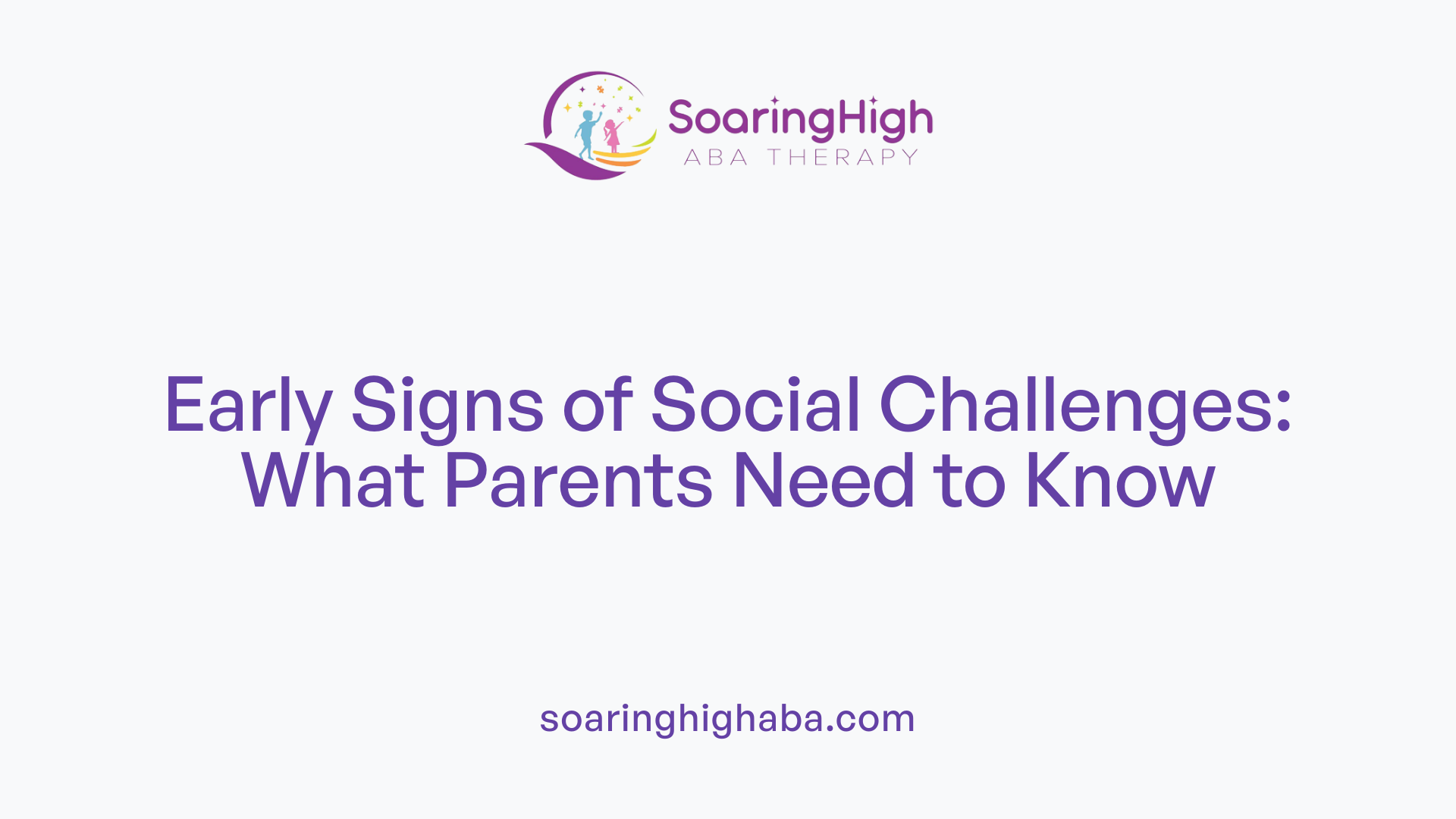
What are signs that a child may be experiencing difficulties with social skills?
Children who face challenges with social skills often display specific behaviors that can serve as early warning signs. They may avoid or show little interest in social interactions, preferring to play alone or disengage when others are around. Limited eye contact or fleeting looks are common indicators, suggesting discomfort or difficulty in engaging visually with peers.
Inappropriate body language, such as ignoring personal space or using gestures that do not match the situation, can also be a sign. Additionally, children might have trouble with turn-taking during conversations, frequently interrupting or speaking excessively about their own interests, which can hinder natural back-and-forth exchanges.
Understanding social cues is often a challenge. Children with social difficulties may take jokes or figurative language literally, not recognizing sarcasm or idioms. They might exhibit difficulty in understanding others’ emotions, responding in ways that seem unrelated or inappropriate.
Forming and maintaining friendships might be problematic. Difficulties in starting conversations or ending them properly can lead to social isolation. Struggles with interpreting emotional expressions or recognizing when someone is upset may result in inappropriate responses.
Early identification of these signs is crucial. Recognizing behaviors such as avoiding eye contact, trouble sharing or taking turns, or not responding appropriately to emotional cues can lead to timely support. Interventions focused on social skills can help children develop essential communication abilities, improve relationships, and foster emotional understanding.
Activities and Methods to Boost Social Competence

What activities and methods can help children improve their social skills?
To enhance children's social skills, selecting engaging and practical activities is essential. Role-playing stands out as one of the most effective approaches, allowing children to simulate real-life situations like greeting friends or resolving conflicts. Social stories are short, descriptive narratives that explain social norms and appropriate behaviors in various scenarios, helping children understand expected responses.
Group activities and cooperative games also play a vital role. Participating in team sports, turn-taking games, and group projects promotes teamwork, patience, and empathy. These activities teach children to share resources, listen actively, and respect others’ perspectives.
In addition, using media and visual supports can support social learning. Videos, picture-based social scripts, and emotion cards help children recognize facial expressions and non-verbal cues, paving the way for better communication.
Programs like social skill groups provide structured environments for children to practice social interactions with peers, under adult supervision. These often include activities like role reversal, sharing challenges, and collaborative tasks.
Finally, integrating creative activities such as singing songs, making masks, or participating in debate-style discussions encourages expressive communication and understands social norms.
By embedding these activities into daily routines and play, caregivers and educators can foster confidence and competence in social situations, preparing children for lifelong positive interactions.
Guidance for Parents to Foster Social Skills at Home

How can parents help their children develop social skills in everyday life?
Parents play a vital role in nurturing their child's social abilities through practical and consistent strategies. One effective approach involves creating regular opportunities for social interaction. These can include organizing playdates, visiting local parks, or involving children in preschool or community activities where they can practice interacting with peers.
Modeling good social behavior is equally important. Children often imitate the actions they observe. By demonstrating politeness, sharing, respectful listening, and empathy in daily interactions, parents set powerful examples for their children to follow. Showing them how to greet others kindly, wait their turn, and respect personal boundaries teaches these important social norms.
Supporting emotional understanding is another cornerstone. Parents can talk openly about feelings, helping children recognize and name emotions. Guiding children to understand others' perspectives encourages empathy, which is essential for developing meaningful relationships.
Encouraging questions and engaging in conversations not only boosts language skills but also enhances confidence in social interactions. Praising children for their efforts and good behaviors reinforces their learning and motivates ongoing social development.
In summary, parents foster social skills by actively creating interaction opportunities, modeling respectful and empathetic behavior, and guiding children in understanding emotions and social cues. These consistent practices ensure children develop the confidence and competence needed for healthy social relationships.
Supporting Children's Social Development and Building Peer Relationships
How can I support my child's social development and improve relationships with peers?
Fostering social skills and healthy peer relationships is vital for a child's overall development. One effective way is to encourage your child to participate in activities that align with their interests, such as clubs, sports, or art classes. These environments offer natural opportunities for children to make friends with similar passions, helping them practice social interactions in a relaxed setting.
Normalizing social challenges is also crucial. Children may struggle with eye contact, sharing, or understanding social cues at times. Sharing your own experiences with social difficulties or discussing common challenges openly can help your child feel less isolated and more confident. This approach emphasizes that everyone faces social hurdles at some point and that they can overcome them with patience and effort.
Using external resources like social skills groups, speech therapy, or community programs can provide structured support. These settings often include activities such as role-playing, social stories, and group games designed to enhance communication, empathy, and conflict resolution skills.
Practical strategies include modeling friendly and respectful behaviors at home, encouraging your child to ask questions to learn about others, and praising their efforts in social situations. Additionally, guiding them to recognize healthy friendships—those that make them feel valued and supported—helps build their confidence.
Overall, supporting your child's social growth involves a combination of shared activities, open communication, and leveraging professional resources. With patience and consistent encouragement, children can develop the skills needed for meaningful peer relationships and greater social confidence.
| Approach | Description | Examples |
|---|---|---|
| Interests-based Friendships | Promote activities aligned with child's interests to foster connections | Joining clubs, sports teams, art classes |
| Normalizing challenges | Discuss social difficulties openly to reduce anxiety | Sharing personal stories of overcoming problems |
| External resources | Use community programs and therapies for structured help | Social skills groups, speech therapy programs |
| Parental modeling | Demonstrate respectful and friendly social behaviors | Politeness, active listening, sharing smiles |
| Encouraging questions | Support curiosity to improve understanding and conversational skills | Asking peers about their interests |
| Focus on genuine friendships | Help your child identify and nurture real connections | Recognizing friends who make them feel good |
By blending these approaches, you can create a supportive environment that nurtures your child's ability to build positive, lasting peer relationships and navigate social settings with confidence.
Causes of Social Skills Difficulties in Children
What are common causes of social skills difficulties in children?
Children may experience challenges with social skills due to various factors rooted in their neurodevelopment or environment. Neurodevelopmental conditions like Autism Spectrum Disorder (ASD), Attention-Deficit Hyperactivity Disorder (ADHD), and non-verbal Learning Disability (NVLD) can impact how children perceive, interpret, and respond during social interactions. For example, children with ASD often find it difficult to understand facial expressions, body language, or social cues, which are essential for building relationships.
Besides neurodevelopmental disorders, other conditions such as Social Communication Disorder (SCD) also hinder a child's ability to grasp social norms and respond appropriately. Environmental factors like a lack of social opportunities, previous negative social experiences, or exposure to high-stress environments can further impede social development.
Anxiety and depression are additional contributors, as they can make children hesitant about engaging with others or cause them to misinterpret social cues. Signs indicating social skill difficulties include limited eye contact, trouble understanding or using gestures effectively, frequent literal interpretation of language, interrupting during conversations, or showing restlessness.
Early identification is vital. Interventions such as social skills training, speech therapy, or occupational therapy tailored to individual needs can significantly improve a child's confidence and ability to navigate social situations. Addressing these issues promptly helps prevent more significant social and emotional challenges later in life and promotes healthy relationships and academic success.
Strategies and Interventions for Children with Autism

What are effective strategies for developing social skills in children with autism?
Supporting children with autism spectrum disorder (ASD) involves a range of targeted strategies designed to improve their social interactions. One of the most effective approaches is implementing structured social skills programs that focus on specific behaviors such as sharing, turn-taking, and understanding social cues. These programs often incorporate social stories—short narratives that explain social situations and appropriate responses—alongside visual aids like emotion cards and social scripts. These tools help children understand what to expect and how to behave in social contexts.
Visual and concrete supports play a crucial role. For example, picture exchange communication systems (PECS) and visual schedules help children grasp daily routines and social expectations clearly. Role-playing activities allow children to practice real-life scenarios in a safe environment, building confidence and skill mastery. Video modeling, where children observe peers demonstrating appropriate social behaviors, also proves beneficial.
Therapies such as Applied Behavior Analysis (ABA) integrate these techniques by reinforcing positive behaviors through immediate, specific praise and rewards. Peer interactions in small groups or facilitated playdates promote generalization of skills, while ongoing assessment ensures that interventions are adapted to each child's progress.
In addition to behavioral methods, fostering empathy and helping children recognize emotions—both in themselves and others—enhances their ability to interpret social cues so crucial for meaningful relationships. Collaboration between therapists, families, and educators is essential to create a personalized and consistent intervention plan.
Building a Supportive Environment for Social Success
Fostering social skills in children is a lifelong journey that involves intentional effort from parents, caregivers, educators, and the community. A holistic approach—incorporating modeling, structured activities, emotional support, and external resources—can help children overcome difficulties and develop into confident, empathetic, and socially competent individuals. Early intervention and consistent practice are key, especially for children with developmental challenges. Creating a nurturing environment where children feel safe, valued, and understood sets the stage for meaningful social growth, enabling them to build lasting relationships, succeed in school, and thrive in all facets of life.
References
- 8 Practical Ways To Develop Social Skills In A Child
- Social Skills - Kid Sense Child Development
- [PDF] Developing Social Skills - NCSE
- Teaching Social Skills at Home - Child Mind Institute
- 20 Evidence-Based Social Skills Activities and Games for Kids
- 8 Important Social Skills For Kids And How To Teach Them
- Simple Steps to Help Your Child Build Social Skills at Home























































